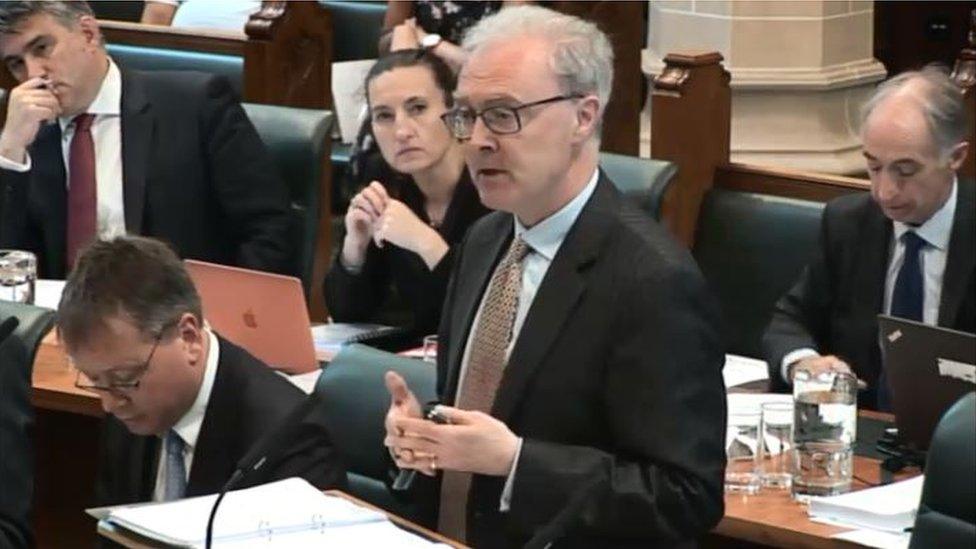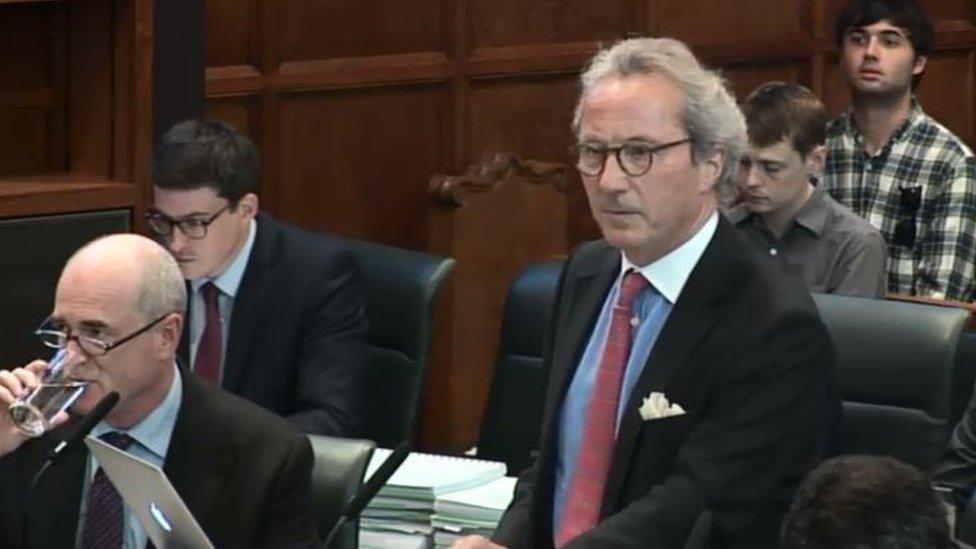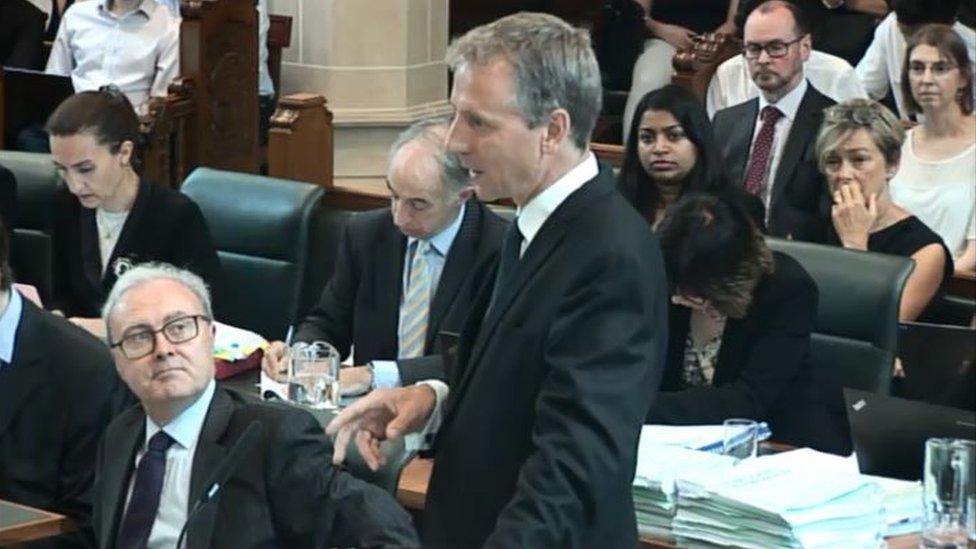Supreme Court hears defence of Scottish Brexit Bill
- Published
- comments

Lord Advocate James Wolffe said the continuity bill "plainly" did not cut across EU law
Holyrood's Brexit bill "plainly" does not cut across EU or UK laws and should be allowed to stand, Supreme Court judges have been told.
The court is considering whether the bill passed by MSPs in March was within the Scottish Parliament's remit.
On Tuesday, UK law officer Lord Keen argued that it is "fundamentally inconsistent" with the EU Withdrawal Bill and should be struck down.
But Lord Advocate James Wolffe insisted the bill was "perfectly practical".
The court also heard from a lawyer for the Welsh government, who said the Lord Keen's arguments were "wrong and incoherent".
And Northern Ireland's attorney general intervened to praise the Scottish bill as "elegantly and adroitly drafted".
Judges have retired to consider the "complicated" case, and are not expected to issue a judgement for several weeks.
The Holyrood Brexit bill - the UK Withdrawal from the European Union (Legal Continuity) (Scotland) Bill, external, better known as the "continuity bill" - was passed in March with only the Conservatives and a single Lib Dem MSP voting against it.
But it was referred to the Supreme Court by UK law officers after Presiding Officer Ken Macintosh raised doubts about whether the bill was within the devolved parliament's legislative competence.
The continuity bill was designed as an alternative to the EU Withdrawal Bill, the UK government's flagship piece of Brexit legislation.
MSPs refused to give their consent for the Westminster bill to cut across devolved areas after a long-running row over how powers currently exercised from Brussels will be used after the UK leaves the EU in March 2019.

Advocate General for Scotland Lord Keen is leading for the UK government in the case
Advocate General for Scotland Lord Keen, who made his main submissions on Tuesday, argued that the Scottish bill was incompatible with the Withdrawal Bill and "cannot stand" alongside it.
The Withdrawal Bill had not been passed at the time the Holyrood bill was voted on, but it is now on the statute book and designated as a "protected enactment" which cannot be modified by the devolved parliaments.
Lord Keen argued that this meant MSPs could not pass legislation which made changes to the Withdrawal Bill, saying that this would create "dual and inconsistent regimes" of law in the UK, causing "confusion and uncertainty".
He also claimed, external that the bill cut across the reserved field of international relations, saying that "withdrawal from the EU is a matter for the UK parliament, and the devolved administrations do not have a parallel legislative competence" in that area.
'Perfectly practical'
The Lord Advocate, who set out the bulk of his defence on Wednesday, argued that Lord Keen was drawing too wide a definition of international relations.
He said EU law "is not a reserved matter", saying that because the bill "has effect only in the domestic legal order, it cannot affect the UK's negotiations with the UK".
Mr Wolffe argued, external that it was "perfectly practical" for the Scottish bill to prepare the statute book "in anticipation" of the UK leaving the EU, something he said was not a "hypothetical" scenario but one which would soon come to pass.
Noting that this is the approach the UK government has taken, he said it was "plainly" not incompatible with EU law, which he said prized "legal certainty and continuity".
And he underlined that the Scottish bill was passed months before the Withdrawal Bill became law, saying that "it was not intended to modify the UK bill and could not do so".

Michael Fordham, speaking for the Welsh counsel general, was strongly critical of Lord Keen's arguments
The court also heard from representatives of other devolved parliaments, who registered as interested parties to back the Scottish parliament's right to prepare for Brexit.
QC Michael Fordham, speaking for the Welsh counsel general, told the court that Lord Keen's claims about the bill cutting across the reserved field of international relations were "wrong and incoherent".
He said this was an "extravagant claim which has very alarming logical implications", adding that the argument "just breaks down at every step".
He also argued that if the UK parliament could legislate for the statute book post-Brexit, the devolved parliaments could "perfectly properly" do the same, saying: "The rule of law must be the same for everyone."
Northern Irish Attorney General John Larkin also backed Holyrood's right to legislate on Brexit, submitting, external that "the bill and all of its provisions are within the legislative competence of the Scottish Parliament".
He said the bill was "elegantly and adroitly drafted", and while some provisions "may have caused teeth to gnash in Whitehall", it could operate successfully.
The judges - Lady Hale, Lord Reed, Lord Sumption, Lord Carnwarth, Lord Hodge, Lord Kerr and Lord Lloyd-Jones - are not expected to return a judgement until the autumn.
- Published24 July 2018
